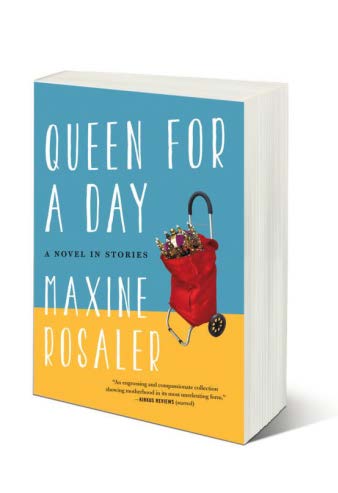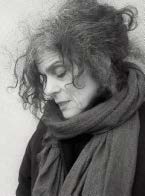Sleepwalking Boy

BY MAXINE ROSALER
(Author's Note: These are excerpts from "Sleepwalking Boy," Chapter One of Queen for a Day. Mimi Slavitt and her husband, Jake, have been seeing a therapist, Stan Shapiro, because they are worried about their threeyear-old son, who has been behaving very strangely for a long time. After a couple of sessions, Stan convinces them that whatever problems Danny might have stemmed from the sorry state of his parents' marriage. Many other people have been warning Mimi and Jake that Danny has serious problems and that they should have him evaluated right away, but they prefer to listen to Stan, who is telling them what they want to hear.)
Title: Queen for a Day Author: Maxine Rosaler Paperback: 256 pages Publisher: Delphinium Publication Date: June 5, 2018 ISBN-13: 978-1883285753 Available on Delphinium Books, Amazon.com and BarnesandNoble.com
A year after Jake and I started seeing Stan, I decided to go to a series of seminars on child discipline that a friend of mine told me about. The seminars were sponsored by a large social services agency in the city; they were free and the par ents were even given subway fare to attend – at the end of every meeting the moderator would pass around a sign-up sheet and distribute subway tokens. There was always a pot of coffee waiting for us, and a generous assortment of snacks spread out on the table – Entenmann's donuts, Cheese Nips, Oreos and big healthy-looking bunches of fresh green grapes.
As we sat around the chipped Formica table, under the flicker ing fluorescent lights of that big bare room, we would take turns talking about our children. There was a six-year-old boy who ran up and down the hallway of his apartment at all hours of the day and night; a five-year-old who couldn't bear to have anything touch her body and was always taking off her clothes, at home, at school, in the playground, everywhere; a four-year-old who liked banging his head against the wall and another four-year-old who was always biting people.
After a few sessions I noticed that most of the children of the parents attending the seminar were autistic. I decided that I must have been sent there by mistake. There was no denying I had a difficult child, but he was nothing like these children.
As time passed, I started feeling more and more uneasy about going to the seminars. Making my way up the stairs, I would often have trouble catching my breath.
I always managed to calm down once I was in the room, entertaining the group with stories about my unruly four-year-old. They thought it was funny, the way my son liked to swing by his arms from the shower rod in the bathroom and was always flushing socks down the toilet and putting silverware, pens and chopsticks into the pencil sharpener. Their generosity, in the face of all the trouble they had with their own children, touched me.
They said that Danny must be very smart; they could tell by the kinds of questions he asked and the observations he made: "Why Play-Doh dries up?" "Why clay doesn't dry up?" "Why is it dark in space?" And his fascination with gravity – the way he was always testing it out by jumping down flights of stairs, jumping off rocks in Fort Tryon Park and throwing things out the window – they thought that was adorable. He sounds like a little scientist, they would say.
There was one parent at the seminar who was never amused by my Danny stories. Her name was Mary. She was the mother of a full-grown autistic man. Her husband had disappeared long ago, and she didn't have any friends left. She had spent the past thirty years taking care of her son. She had to engage in hand-to-hand combat with him whenever she left the house – he would block the doorway, all two hundred fifty pounds of him. She had black-and-blue marks all over her arms to prove it, which she wearily displayed for everyone to see.
A couple of times Mary turned to me and told me that there was something wrong with my son and that I had to get him evaluated right away. Whenever Mary spoke w to me that way, the familiar terror would grip me, and it wouldn't leave, not even when I was explaining to her that there was nothing wrong with Danny – that a psychologist had assured me he didn't "have anything you could pin a label on." I was relieved when Mary stopped coming to the meetings, which clearly had nothing to offer her. Everyone else seemed happy to see Mary go, too. She was the only mother of an adult there. All the rest of us were the mothers of young children.
We ate at the Kiev. When we were seated at the table, waiting for our orders to arrive, we asked Danny which was bigger, an elephant or a mouse, and he said an elephant. Good. That was good. He was learning. Already. But other similar questions he answered incorrectly. We asked him how we had gotten to this part of town from our apartment in Washington Heights. He didn't answer, so we supplied him with multiple choices: Did we walk? Did we drive? Did we go by airplane? "Walk," he said. "Yes, Danny, we walked from the car to the restaurant, but how did we get from Stan's office to here?" "Walked," Danny answered. "Where did we go this morning, Danny? Did we go to Grandma's house, or Stan's office, or to school?" "Grandma's house."
Outside, the streets thronged with young people who were tattooed all over, with hair in unnatural colors and unusual shapes, teenagers who had taken body piercing beyond what was currently acceptable, people trying, in a world saturated with shocking images, to stand apart, to be, if possible, more bizarre than the advertising. Mingled with all these young people were immigrants and working-class men and women, and even some middle-class people, carrying briefcases and dressed in business suits. Jake and I were in our forties, the age of the immigrants and the office workers, but even when we had been young enough to fit in here, we had never believed the claims the East Village made to freedom and tolerance and alternative ways of being. Now it comforted us to be here with Danny in this carnival-like atmosphere. It comforted us to think that we lived in a world in which differences were welcomed. It made us feel better to think this, even though we didn't believe it. •
ABOUT THE AUTHOR: Maxine Rosaler's novel in stories, Queen for a Day, is about the mothers of children with autism. It was published by Delphinium Books in June and received a starred review from Kirkus and has been nominated for The Kirkus Prize and a National Book Award.
